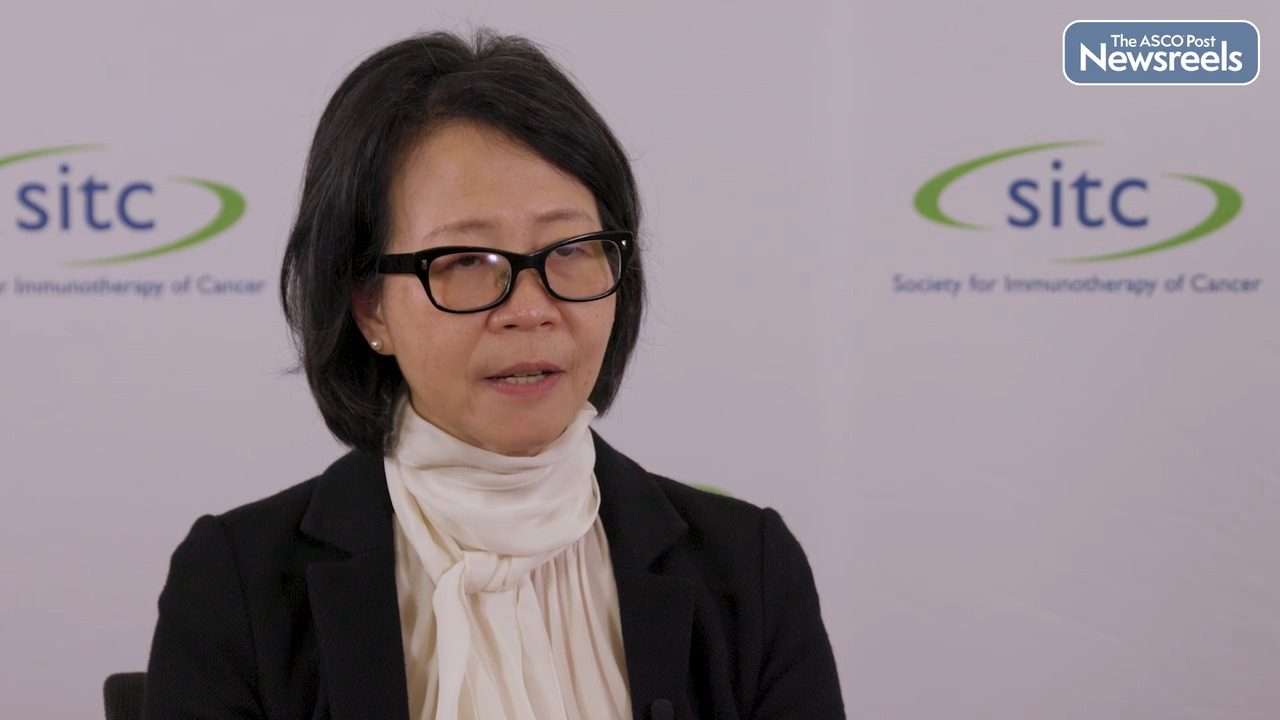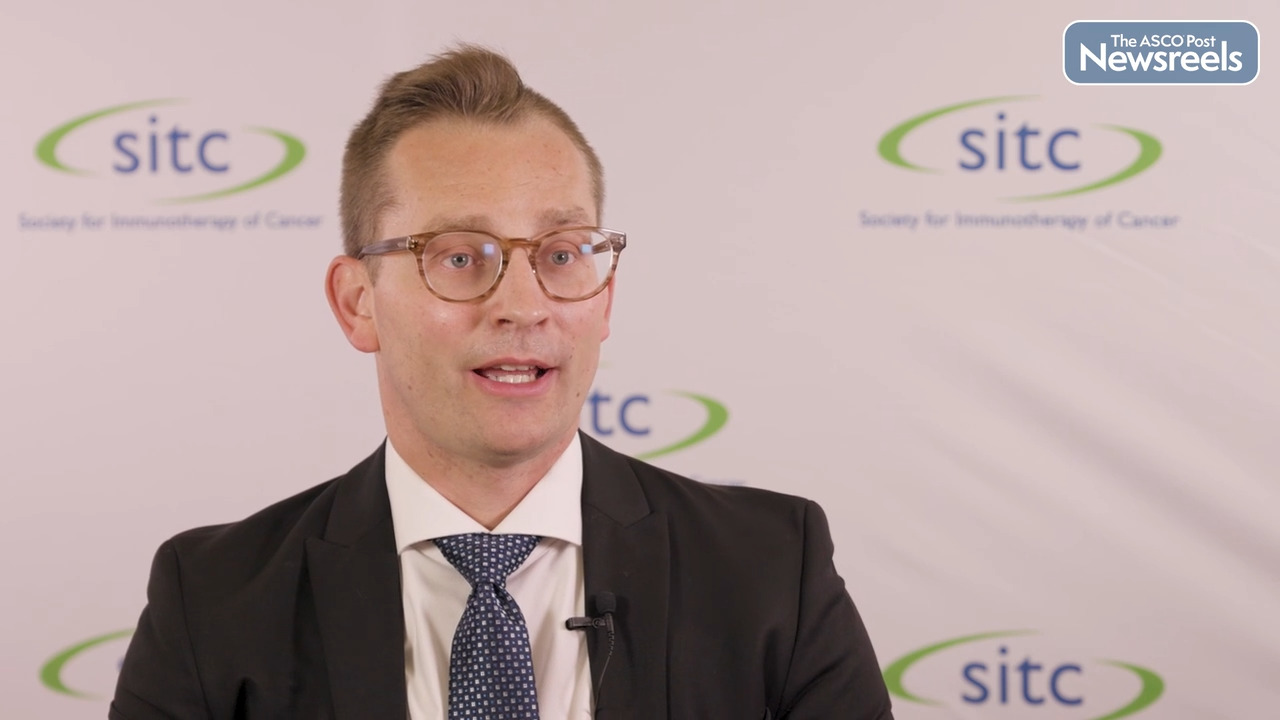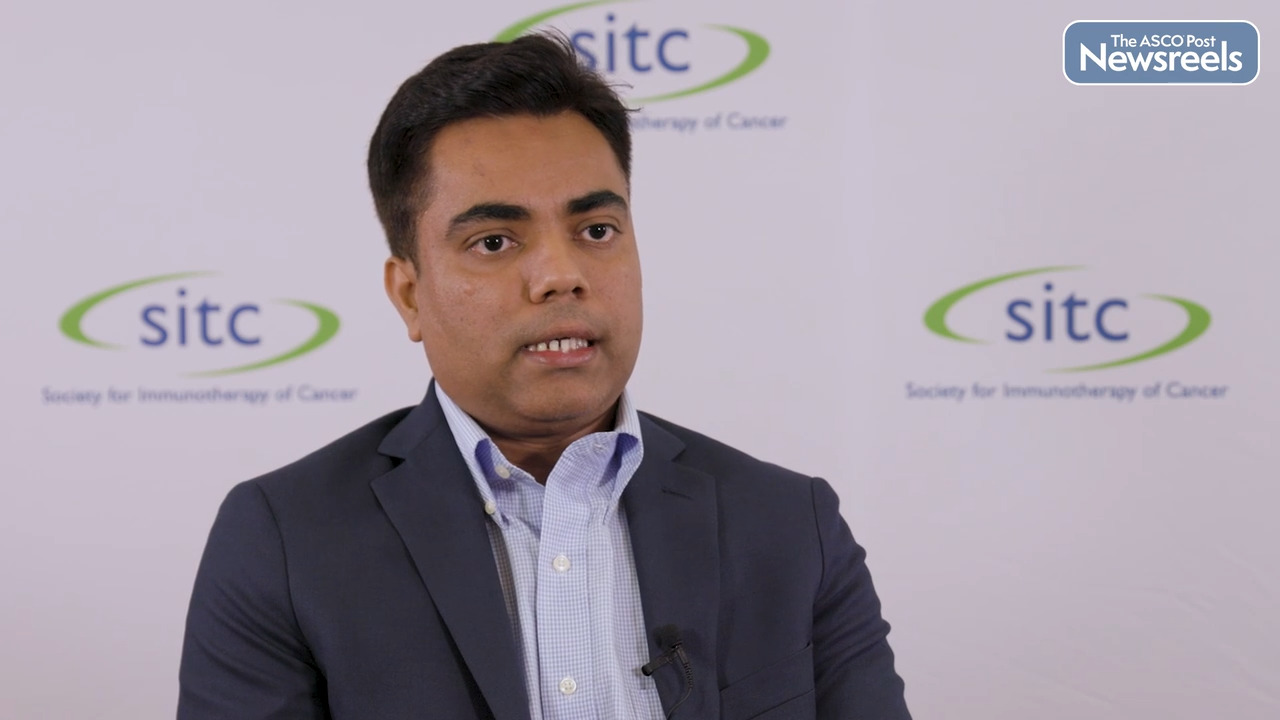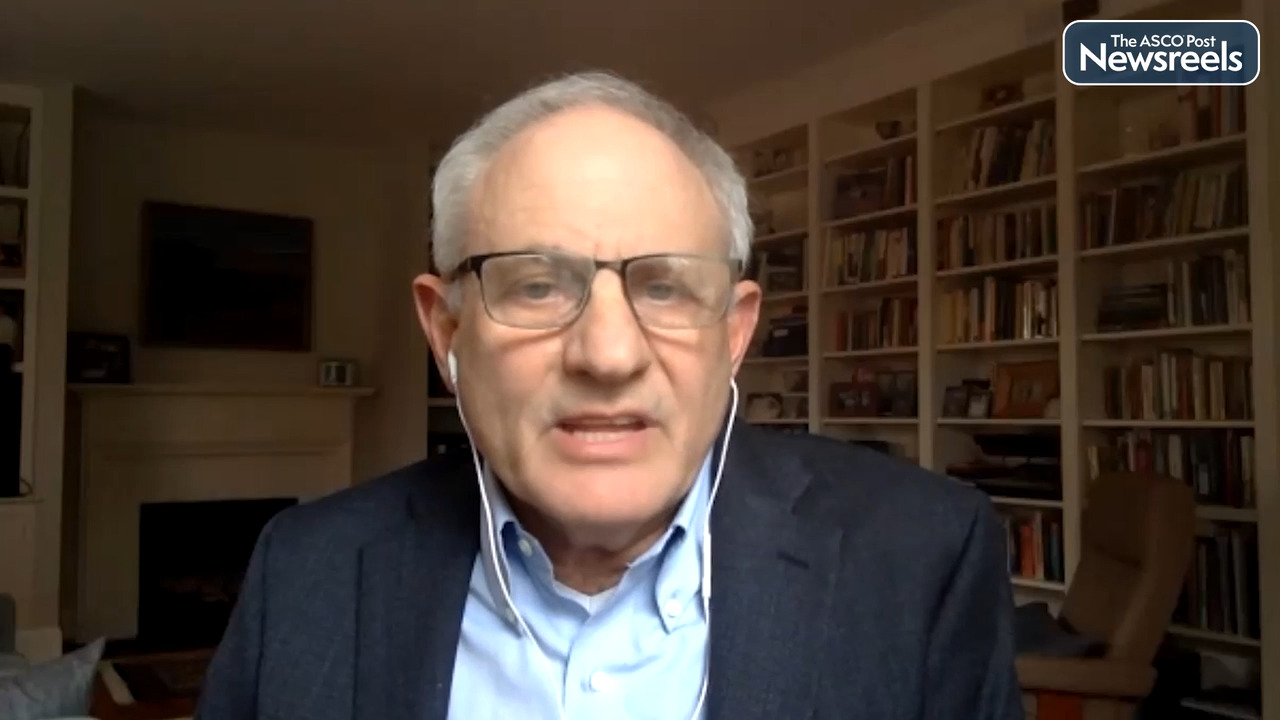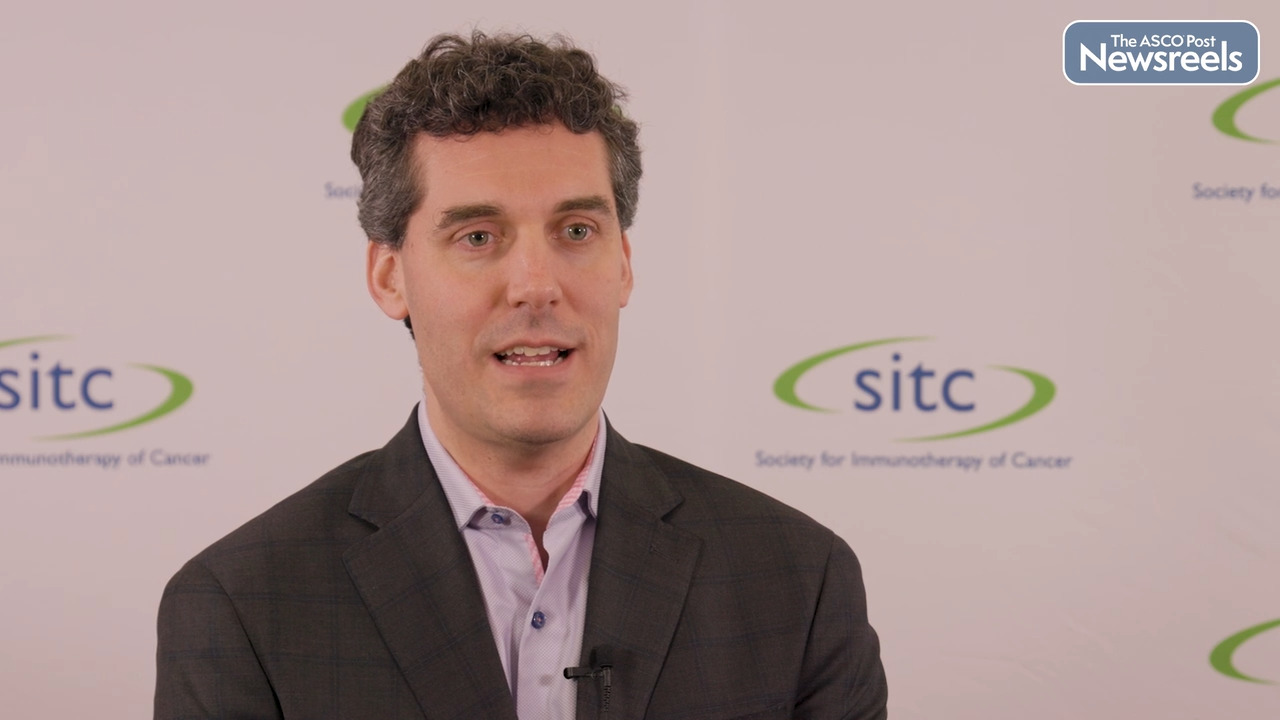Jonathan Chen, MD, PhD, on NSCLC: Predicting Response to Immunotherapy
SITC 2022
Jonathan Chen, MD, PhD, of Massachusetts General Hospital, discusses “immunity hubs” that interact with a reservoir of stem-like CD8 T cells and appear to be associated with subsequent response to anti–PD-1 blockade in patients with non–small cell lung cancer. Hybrid hubs, Dr. Chen says, are a favorable class of immunity hub notable for CD8-positive and TCF7-positive cells, as well as CCL19 expression (Abstract 956).
Transcript
Disclaimer: This video transcript has not been proofread or edited and may contain errors.
In our previous study of human MSI and MSS colorectal cancer, we use single cell RNA sequencing to infer a network of CXCR3 ligands and interfering gamma positive T cells. Then using multiplex RNA ISH, we were able to stain for these components and identified a multicellular network comprised of these CXCR3 ligands, CXCL10 and 11 that spatially co-localized with interfering gamma positive cells. We called this multicellular network the Immunity Hub.
So our question leading into this study was, are these multicellular hubs, these immunity hubs, important and what is their biology? We built a cohort of 68 pre PD1 immunotherapy human non-small cell lung carcinoma cases, 20 of which went on to respond to immunotherapy. We then used the same multiplex RNA ISH panel to verify the association of immunity hubs with subsequent response to PD1 therapy. We then built a second multiplex antibody panel designed around CD8 T-cell state.
We stained a serial section and then co-registered the RNA ISH panel with the antibody panel. We then performed a clustering analysis of the spatial data based upon the phenotypic composition of the immunity hubs. This revealed an especially favorable subclass of immunity hub that we call the Hybrid Hubs, which feature enrichment of CD8, TCF7 double positives stem-like T-cells. These CD8 TCF7 rich hybrid hubs showed variable B-cell content and were not clearly associated with B-cell follicles or germinal centers.
The hybrid hubs were found at sites where both CXCL10 11, and CCL19 were found. Hence, the name hybrid hubs. We think hybrid hubs may bring together the CXCR3 network, which is associated with activated T-cells and the CCR7 network, which is more associated with stem-like cells. Additionally, we found hybrid hubs enriched for macrophages that express CXCR3 ligands.
These hybrid hubs are morphologically reminiscent of the interfollicular zone of secondary lymphoid organs. We think that hybrid hubs might serve as a reservoir of stem-like antitumor T-cells, and this might partially explain why they're associated with favorable response to PD1 immunotherapy.
The ASCO Post Staff
Julia Tchou, MD, PhD, of the University of Pennsylvania, discusses preliminary results of the phase Ib/II BreastVax study, which suggested a single preoperative pembrolizumab dose plus a tumor-targeting radiation boost may result in pathologic response in patients with early-stage triple-negative breast cancer (Abstract 644).
The ASCO Post Staff
Wade T. Iams, MD, of Vanderbilt University Medical Center, discusses phase II efficacy results from the first-line non–small cell lung cancer cohort of the TACTI-002 study. The results suggest that when combined with pembrolizumab, eftilagimod alpha yielded encouraging efficacy across all PD-L1 levels, including patients with PD-L1 low and PD-L1 negative disease (Abstract 1470).
The ASCO Post Staff
Kishu Ranjan, PhD, of Yale University School of Medicine, discusses his study findings, which identified a deficiency in the biomarker TAP2 as a prominent immune evasion mechanism in patients whose non–small cell lung cancer has resisted immunotherapy (Abstract 148).
The ASCO Post Staff
Michael B. Atkins, MD, of Georgetown Lombardi Comprehensive Cancer Center, explores recent clinical trials in immuno-oncology in which the phase III trial produced markedly different results from the phase II trial. To help understand the potential value to patients of late-stage trials of treatment combinations, the Society for Immunotherapy of Cancer has developed a checklist for investigators, applicable to any regimen in which immune modulation is an important component of the antitumor effect.
The ASCO Post Staff
Michael A. Postow, MD, of Memorial Sloan Kettering Cancer Center, discusses new findings on the correlation between CD8 cell PET imaging with zirconium-89–crefmirlimab berdoxam and CD8 cell immunohistochemistry in patients with advanced cancer receiving immunotherapy. Noninvasive CD8 PET scanning with crefmirlimab berdoxam permits whole-patient, longitudinal CD8 assessment, which is currently under investigation as a biomarker for immunotherapy responsiveness and may be a useful tool for immunotherapy development and clinical management (Abstract 1472).
